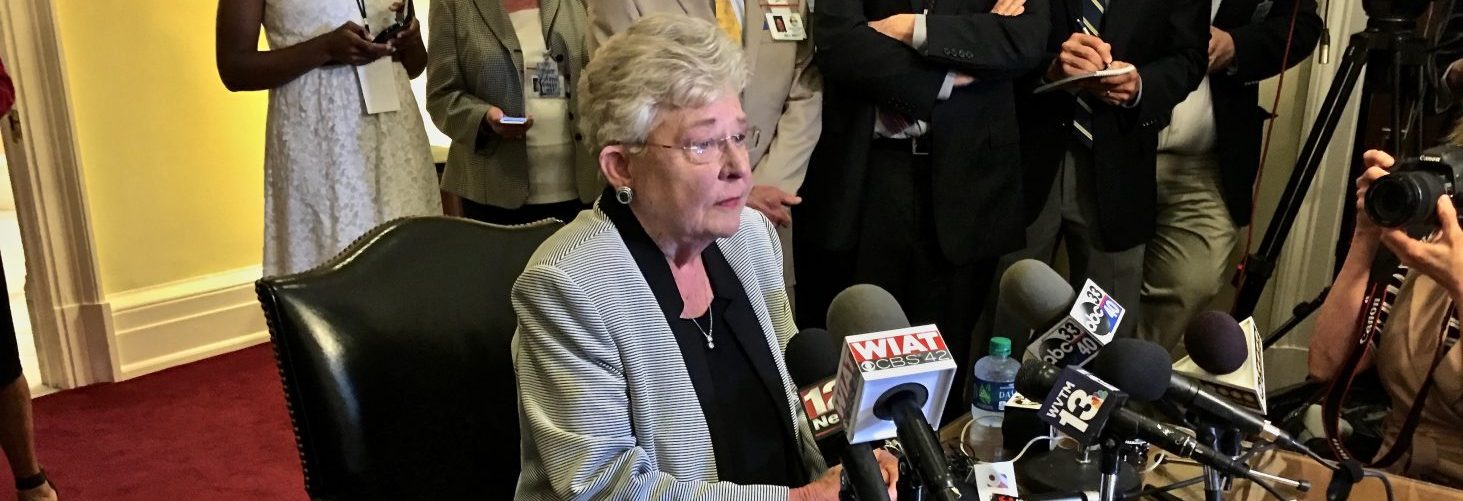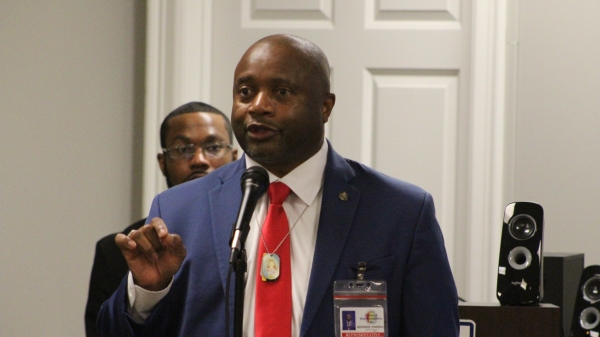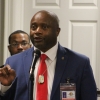By Bill Britt
Alabama Political Reporter
When the Alabama Republican Party swept into power during the November 2010 elections, they promised us change. In his book, Storming the State House, Mike Hubbard wrote of that November evening, “It would fundamentally change the direction of Alabama, and of my own life, forever.”
Republicans have controlled Alabama’s State government for nearly seven years, and the only justification they offer for their shortcomings is, “It would have been worse under the Democrats.”
The real problem, however, is instead of a sound policy rooted in principle, Hubbard’s brand of Republicanism, like many others of his ilk, lacks real ideology, and is therefore bound to only interests that further their success. This political bent is a type of opportunism, that can be wrapped with any label, Republican, Democrat, Communist, Anarchist, or any “ism” because it is malleable, able to mold neatly around any political interest of the moment. If politics is at its most basic “who gets what” and if the process is one of “what is possible” within a given political context, then how do we as a State proceed?
Our State’s problems are many but solvable. What is absent is a willingness to change the culture that not only created the problems but sustains them.
How can anything be made better when those in power can’t say no to special interests?
How can ideas of reform or progress take hold when lobbyists coopt the agents of change? This is the pox that rests on the House of both Democrats and Republicans.
Hubbard, who set the agenda for the 2010 takeover, along with former Gov. Bob Riley, BCA Chieftain Billy Canary, and a handful of others, did fundamentally change the State; but not for the better. Their plan did not alter how business in Montgomery is conducted; they just realigned the power base.
The first of their big ticket items began during Riley’s last term in office when he and Hubbard set about destroying the Democrats funding efforts but targeting gaming interests and the Alabama Education Association. Secondly, they, along with Canary’s input, passed so-called Ethics reforms with loopholes for the Business Council of Alabama and Riley’s business interests.
Ethics reform was a magic trick that was to go undetected. However, Hubbard’s embrace and expansion of the culture of corruption exposed it as a lie.
Of course, that did completely change Hubbard’s life forever, because he was convicted of 12 felony counts of public corruption. So, his words on the night of the Republican’s 2010 victory were prophetic; just not what Hubbard had in mind when he uttered them.
Hubbard, sentenced to prison over a year ago yet still remains free on bail, and many of his cronies are still in power. But Hubbard, like his mentor former Gov. Bob Riley, never intended to change the workings of Montgomery, except in how it paid them and their cronies.
Again, in Storming the State House, Hubbard shows the hollowness of his and Riley’s promises. Recalling a rally where Riley was to lay out his plan if elected Governor, he writes, “Riley, wearing a tie and a blue dress shirt that quickly became dark with sweat, laid out his campaign platform. His reform-minded agenda included changing the State budget process to lessen the possibility of mid-year proration, road-building based on priorities rather than politics, focusing on economic development, and building a world-class education system.”
We are well over a decade removed from Riley’s “reform-minded agenda,” and all that is noticeable is how he has prospered by co-opting road builders, education policy, and economic development to enrich himself as a lobbyist. Sadly, this is the current legacy of the Republican movement in Alabama, but it doesn’t have to stay this way. Even so, to fundamentally change State government in a positive way that benefits the governed and not the governing class, there must be a movement to change the culture guided by principles, not proverbs.
When a political movement forfeits ideas for catchphrases, sound policy is hard to achieve, because there is no real foundation from which to govern.
On a State level, the Alabama Democratic Party is controlled by a leadership team that has passed its sell-by date long ago, and on the other side, the way forward coming from the ALGOP is by-in-large as stale as week-old bread.
Both parties are out of real ideas on how to address the most pressing issues facing our State.
Months before Governor Bentley resigned in disgrace, a close associate of then-Lieutenant Gov. Kay Ivey phoned me, and, in essence asked, “Wouldn’t it be exciting to be a part of a government where for two years, the focus would be ‘righting the ship of state’ without thought of the next election; to make real and enduring change based on principle?”
Gov. Ivey promised to do just that, but so far, other than calling a Special Election for US Senate, there is little evidence that principled change is at hand. Missteps coupled with an insular and secretive management style has led to suspicion and perceived weakness or worse, further corruption.
The Ivey Administration’s reliance on Riley/Hubbard retreads for leadership positions casts a dark cloud over the whole enterprise. Some in the administration have complained that past association with the Riley/Hubbard gang should not disqualify a candidate for public office, which is true. But when an administration’s first hires and appointments are those who have participated in schemes to empower and enrich Riley/Hubbard/Canary and their families, it is difficult to believe it has picked the best or the brightest.
While the next election cycle is already upon us, there are still hours to work toward significant progress, should the Administration embrace the idea of principled change as expressed in the call I received last year.
For the better part of the last seven years, Hubbard, along with the BCA chieftain Canary, and choice lobbyists including Riley Inc., ran the State House for their profit. Canary, the chosen lobbyist, and Riley Inc. are still on the prowl and continue to manipulate State government. Add to that the bullies who control big, short-sighted associations and there remains a threat to good government based on sound policy.
Last Session’s failure to pass a reasonable infrastructure tax and ignoring the much-needed clarification and strengthening of the Ethics laws is a further example of how the system is fractured at its core. Add to that, the Ivey Administration’s tabling of the final report by the Gaming Taskforce, and the Legislature’s refusal to address the State’s prison problems all point to a lack of political courage. Granted the players may be new in their positions, but they are not new to the game, and the major problems we face are decades old.
There is new leadership in the Governor’s office and in the House of Representatives, where there is an opportunity to reshape our State government; but is there a willingness?
Change will come. It always does. But what kind of change will it be?



















































